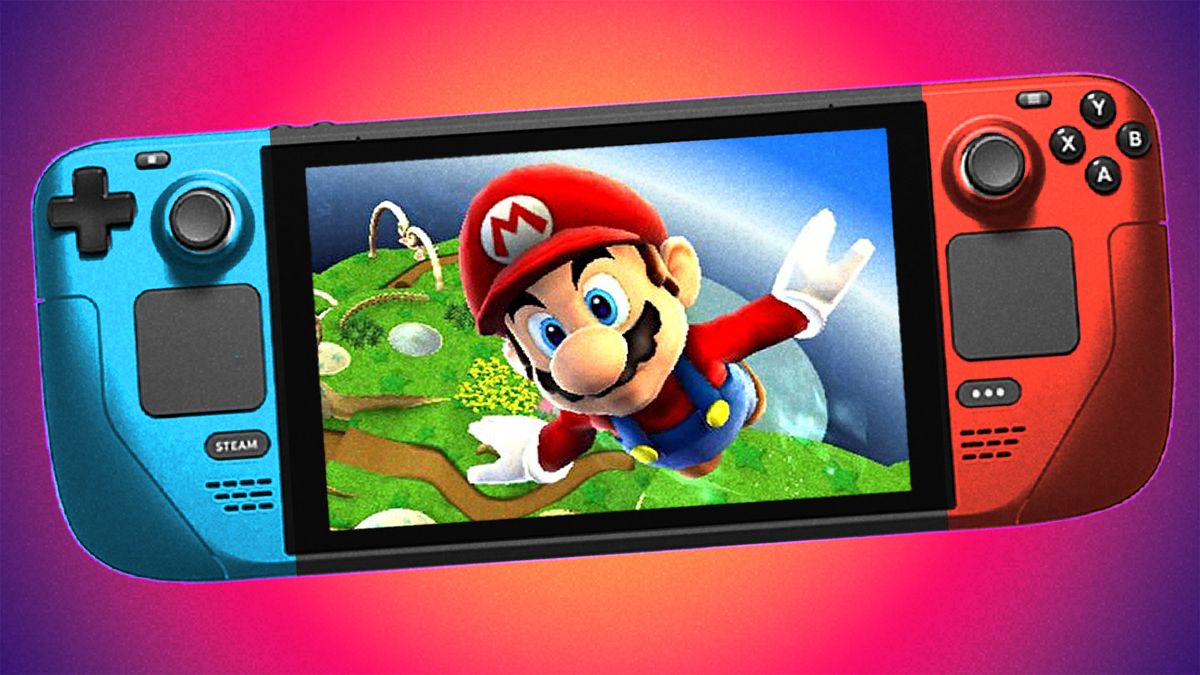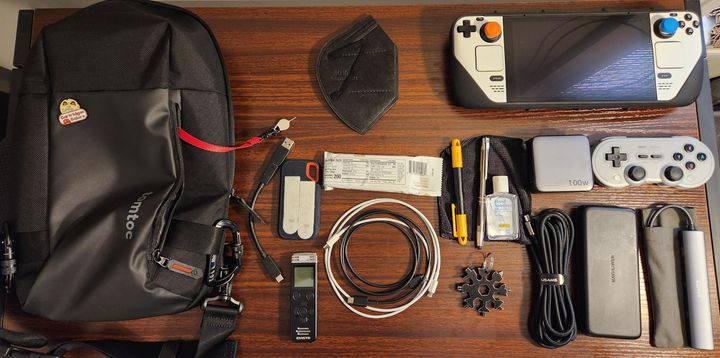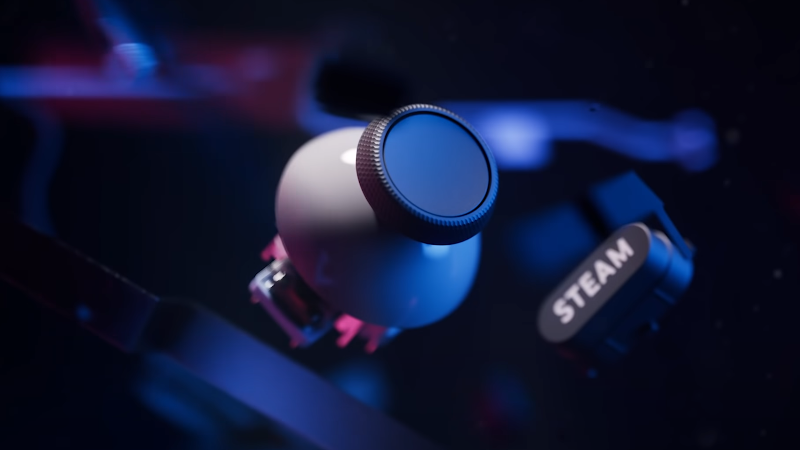If you care at all about video games, emulation is a moral obligation.
I know Nintendo's like 200 years old, but they should really get with the times.

If you’re chronically online like I am, you’ve probably seen the raging debate among gaming enthusiasts: emulation “right or wrong?” With the rise of platforms like the Steam Deck and readily available Nintendo Switch emulators, this debate has only been inflamed. While some argue that emulation is a legitimate way to exercise your rights as a customer, concerns about software piracy have raised important ethical questions. This essay aims to explore, in detail, the morality of emulation, consider its legality, the issue of software piracy, the response of companies like Nintendo, and of course, what the future may hold for the industry.
What is emulation?
If you’ve only ever heard the term “emulation” as it applies to video games–or if you’re only vaguely familiar with the idea in general– allow me to explain: emulation recreates the functionality of one system on another. Often, emulation involves simulating the hardware of one platform in code, thus enabling software designed for another platform to be played on incompatible devices.
Emulation itself is not unlawful. Emulators do not typically contain proprietary code from the systems they emulate, and their development and distribution does not infringe upon copyrights of the platform holder. There’s a long legacy of court precedent to back this up, too. But, the legality of emulation becomes more complex when considering the use of copyrighted software with emulators.
One of the primary concerns surrounding video game emulation is software piracy. It’s true that game developers invest considerable resources in creating and distributing their titles, and piracy really can undermine their ability to generate revenue and sustain their business and the industry at large. Nintendo has an inarguable interest in protecting their intellectual property and preventing unauthorized distribution of their games.
Emulator communities such as Yuzu and Ryujinx have taken steps to distance themselves from software piracy. They actively ban discussions related to pirated software on their official forums. Additionally, their emulators don’t contain proprietary code. These efforts indicate a commitment to responsible emulation that respects the rights of game developers and publishers.
Emulation does what Nintenwon't
However, this has not been a two-way street. Despite the legality of emulation itself, companies like Nintendo have taken a regressive stance against emulation and have vigorously pursued legal action against individuals and websites involved in distributing copyrighted games. But not all copyrights should be considered equal. And we’ll get to that in a minute.
Presumably, Nintendo's aggressive approach stems from their desire to safeguard their intellectual property and maintain control over their products. However, I’d argue that this approach leads to an infringement on consumers' rights.
Nintendo's response raises questions about the balance between protecting intellectual property and recognizing the natural rights that users have to enjoy games they legitimately own however they see fit.
It also raises concerns about potential limitations imposed on game preservation and accessibility for players who lack access to original hardware or discontinued systems.
Ethical implications
When examining the ethical implications of video game emulation, it is crucial to weigh various factors. On the one hand, emulation enables us all to preserve and experience games that might otherwise be inaccessible. Whether that’s due to unavailability of the game, the required hardware, or other limitations.
On the other hand, software piracy can undermine the financial viability of the industry and compromises the livelihoods of developers and publishers. If we are to believe Nintendo, ethical considerations demand that individuals respect all copyrights in perpetuity to protect the integrity of the video game industry. But purchasing legitimate copies of out-of-print games does nothing for the rights holder. And certainly, if Nintendo had their way, the secondary market would be outlawed, anyway.
What even counts as piracy?
The question is: is the software piracy concern completely overblown? I believe that it is. As I’ve already mentioned, Switch emulators do what they can to discourage piracy. But what about the GameCube? Or the Super Nintendo? Is it even possible to “pirate” games that you can no longer buy?
There’s a vast gray area when it comes to abandonware, software out of print, and games that are no longer commercially available. Where do we draw the line of what’s considered piracy?
Should we allow the enjoyment of classic video games to be relegated to a privilege for those with the financial means to collect rare or out-of-print games and the hardware to play them? I’d argue that, no, we shouldn’t.
According to the Video Game History Foundation, a staggering 87% of classic video games are considered critically endangered. This statistic highlights the urgent need for preservation efforts within the gaming industry. Emulation plays a crucial role in safeguarding gaming history by allowing enthusiasts to access and experience out-of-print software. Emulation fosters a sense of cultural preservation, lending future generations insights into the evolution of the medium. Consequently, I’d argue that emulation is an ethical imperative to ensure that gaming history is not lost to time.
Should it be considered piracy if a copyrighted game that’s only available on the secondary market is downloaded for free? At worst, this is a victimless crime. If the copyright holder is not making their game available at retail, then they lose nothing in either scenario.
Should the only legal option to access retro games be a poorly-curated and extremely limited library locked behind a monthly paywall? No. I believe that’s highly unethical.
The prevalence of such anti-consumer practices within the gaming industry poses special ethical concerns. Monthly subscriptions for access to such libraries undermine not only consumer rights and also erode the common law understanding of ownership. Such practices prioritize corporate profit over the interests of gamers, normalizes the role of the consumer–not as a customer–but as an object of financial exploitation, and most importantly, impedes the future preservation and accessibility of gaming content. Ethical considerations demand the outlawing of such anti-consumer practices that limit customer choice and preempt wider access to gaming history.
Especially when you consider that most of these games should have already fallen into the public domain by now, anyway. Yeah, I told you we’d get to it…
We need reform and we need regulation
Current intellectual property laws impede efforts to preserve and access video game content through emulation. Copyrights used to last 20 years, but now they’re virtually immortal. IP law must be reformed to accommodate the public interest. Copyrights must have reasonable expiration dates. Such reform would allow games and other content to enter the public domain in a timely manner and become accessible for preservation purposes. There must also be a revised legal framework that acknowledges the importance of video game preservation to not only benefit gamers, but also the industry.
The ethical implications that arise when considering video game emulation extend far beyond the gaming industry. Emulation itself is not illegal and, in fact, emulation communities have a moral obligation to preserve video game history and stand firm against unethical copyright laws and the financial incentives to pervert them further.
Companies like Nintendo, driven by their nearsightedness and their nature as a publicly traded company, have taken a strong and misguided stance against emulation. This approach should be blunted by both regulation and reform that represents the public interest to ensure the preservation and accessibility of gaming history for future generations. Striking a balance between copyright protection and the rights of customers is essential to navigate the ethical landscape of video game emulation.
Ultimately, we as gamers should be fostering a culture that celebrates the history of gaming through emulation and standing firm against the blind, profit-driven corporate machinations that aim to roll back our rights and censor the history of the industry. We have an obligation to emulate, to preserve the history of video games, and to share the titles we enjoy today with future generations.
I'd love to hear your thoughts about emulation and where the rights of customers should take precedence. Share your thoughts in the comments below!




Comments ()